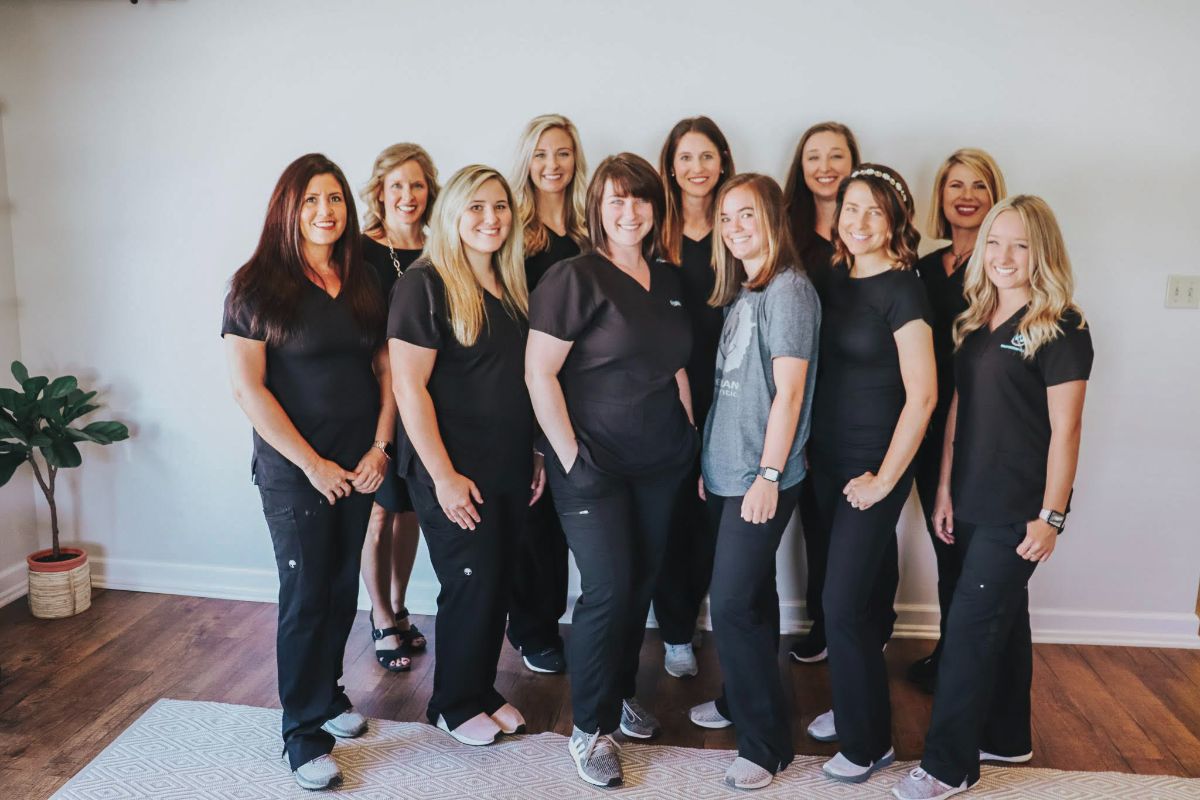Here at Wiesemann Orthodontics, we know the hard work and dedication that you’ve put into improving your smile, and we’re proud of you for following all of our recommendations and taking good care of your teeth while we worked to straighten them! Now that you’re nearing the end of your active treatment phase, you’re probably pretty excited to get your braces off or finish your last set of clear aligners. While that’s undoubtedly an exciting moment to look forward to, don’t forget that there’s still one more phase of treatment ahead of you: retention.
Retention works to round out your treatment and hold your newly straightened teeth in place once your appliance is removed. You’ve likely heard that retainers are important, but you may not understand exactly why they’re so important to the future of your smile. Since that’s what the retention phase revolves around, now’s the perfect time to learn a little bit more about these orthodontic superstars! Keep reading below for a closer look at the basics of retention, the different kinds of retainers we offer, and why regular wear is the key to long-lasting results.
Why are retainers so important for my orthodontic treatment?
Unfortunately, the tooth-aligning effects of braces and clear aligners don’t last forever on their own. You can blame that on a dental phenomenon known as relapse, which describes the natural tendency of the teeth to drift back towards their original unaligned positions as we age. Relapse generally begins in your late teens or early twenties and can occur even if you’ve completed orthodontic treatment. Retainers play a major role in preventing relapse by holding your teeth in their new positions.
Relapse occurs due to the fact that teeth aren’t just affixed directly to the jaw—rather, each tooth is held in its socket by elastic ligaments that connect the roots to the jawbone. These ligaments are living tissues that are affected by the movement of the teeth, and it’s this attachment that allows for the small movements of the teeth during treatment.
We use orthodontic appliances like braces and aligners to place tension in and around the teeth, which facilitates the formation of new ligaments and sometimes bone. This is known as the remodeling phase of treatment. Once this is complete, the newly formed tissues, ligaments, and bone will need time to stabilize. This happens in part during the retention phase. If there’s nothing to hold the teeth in place during this phase, they will almost always migrate back to their old positions.
So what does that mean for you? If you don’t wear your retainer once the active phase of treatment is complete, your teeth will eventually start shifting back to their old positions, undoing all your hard work. Thankfully, it’s easy for you to avoid relapse! Keeping your teeth in place is as simple as wearing your retainer as directed by our doctors. They’ll choose the best type of retainer for you based on your unique needs, preferences, and expected compliance.

What types of retainers are available?
Here at Wiesemann Orthodontics, we offer patients fixed orthodontic appliances (like braces) and removable appliances (like Invisalign clear aligners). We have the same flexibility when it comes to retainers! Here’s a look at the different retainers available.
Fixed retainers
Fixed retainers generally consist of a thin wire that’s bonded behind the bottom or top teeth, or sometimes both. These can be a particularly helpful option for patients who have (or have had) a large space between the two upper front teeth. Once treatment is complete and the space is completely closed, a fixed retainer can be used to keep it that way.
Since the wire stretches across several teeth, dental hygiene is similar to that of a braces patient. If you have a fixed retainer, you’ll need to be especially careful with brushing and flossing to ensure it stays clean. Because the bonded wire holds your newly straightened teeth in the ideal alignment over a long time, fixed retainers often have excellent outcomes—and the best part is, you never have to remember to wear them!
Removable retainers
When it comes to removable retainers, there are a couple of different options available. The Hawley and Essix models are both custom-designed to fit your mouth for the best results. When you complete the active phase of treatment, our team will take an impression of your teeth and use this to create your retainer.
Hawley retainers
Hawley retainers are one of the oldest types of retainers, and the ones you’d be most likely to recognize! They’re made of stainless steel and kept in place by wrapping a wire around your teeth. That wire has been combined with an acrylic arch that rests against the roof of your mouth, and it can be adjusted to continue minor movement of the front teeth if needed. While many orthodontists are moving away from using Hawley retainers, they can still be very useful in certain cases.
Essix retainers
Essix retainers look very similar to the clear aligners used with the Invisalign system. They’re made entirely of transparent plastic and molded to the unique shape of the patient’s mouth. Essix retainers may cover the entire arch of the teeth or only go from canine to canine. This type of retainer is very subtle and should last as long as you need it, provided you care for it properly.
Cleaning your teeth is easier with removable retainers, but you will have to remember to wear them daily. They can be pretty easy to misplace or damage, so you’ll also need to be mindful of where it is at all times and be careful when handling it.

Keep your smile on the straight and narrow with Wiesemann Orthodontics
Did you know that in the first year after treatment, your teeth can begin to shift back to their old positions in as little as a few days? If you don’t wear your retainer regularly, you could be at risk of losing your stunning new smile. Modern orthodontic wisdom tells us that most patients will need to wear some type of retainer indefinitely for the best results, but don’t let that worry you! Your retainer will become just another part of your daily life before you know it.
The expert team here at Wiesemann Orthodontics is committed to finding exactly the right orthodontic treatment for your smile, and that includes the type of retainer that will be the best fit for you! Have questions about retainers or the retention phase? Get in touch today! We’re happy to walk you through any concerns you have.
Our goal is to give you a beautiful smile that’s fully functional for years to come!
